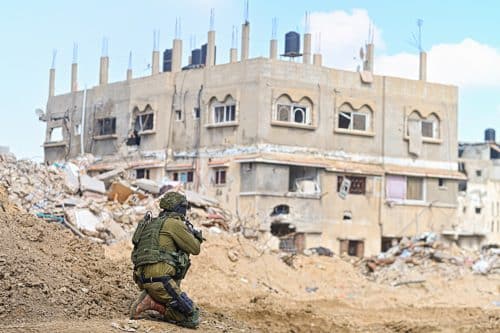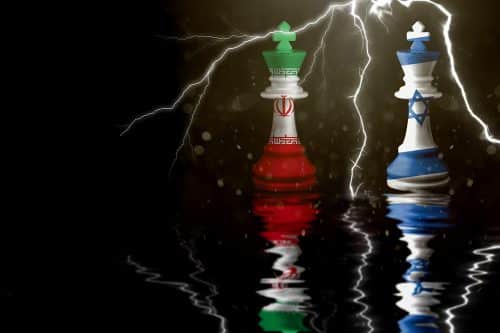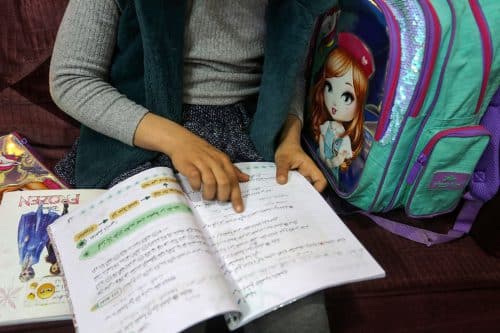A direct line is drawn between Tehran and Lod and between Gaza and Jerusalem. Operation “Guardian of the Walls”, alongside the events in the mixed cities, which would eventually be called the “May 2021 Riots”, colored this line in a bright red shade which indicates a clear and present danger. The danger that lurks around the corner for us: a combined assault upon Israel, both internally and externally.
Israel’s enemies have a clear strategy that leads to this decisive point. And what about Israel?
The Palestinian National Security Strategy: There is Such a Thing
Do the Palestinians have a national security strategy? Obviously neither the Palestinian Authority nor Hamas would ever publish such an official document but following their actions can provide a good answer to this question.
Before we examine this, it is important to first understand the mistaken basic concept of the State of Israel: while discussions and evaluations of the situation tend to divide the Arabs into Hamas Arabs in Gaza, Israeli Arabs, Arabs of the Palestinian Authority and Arabs of the mixed cities, de facto this is one Palestinian Arab campaign over all the Land of Israel.
An examination of the actions of the Palestinian Authority, Israeli Arabs and additional regional entities reveals an overall strategy in the struggle for the Land of Israel. This campaign is coordinated and synchronized among all the entities, with the same methods of operation. In other words, we are facing a single entity with a single strategy.
This strategy has two prongs: A national strategy and a security strategy.
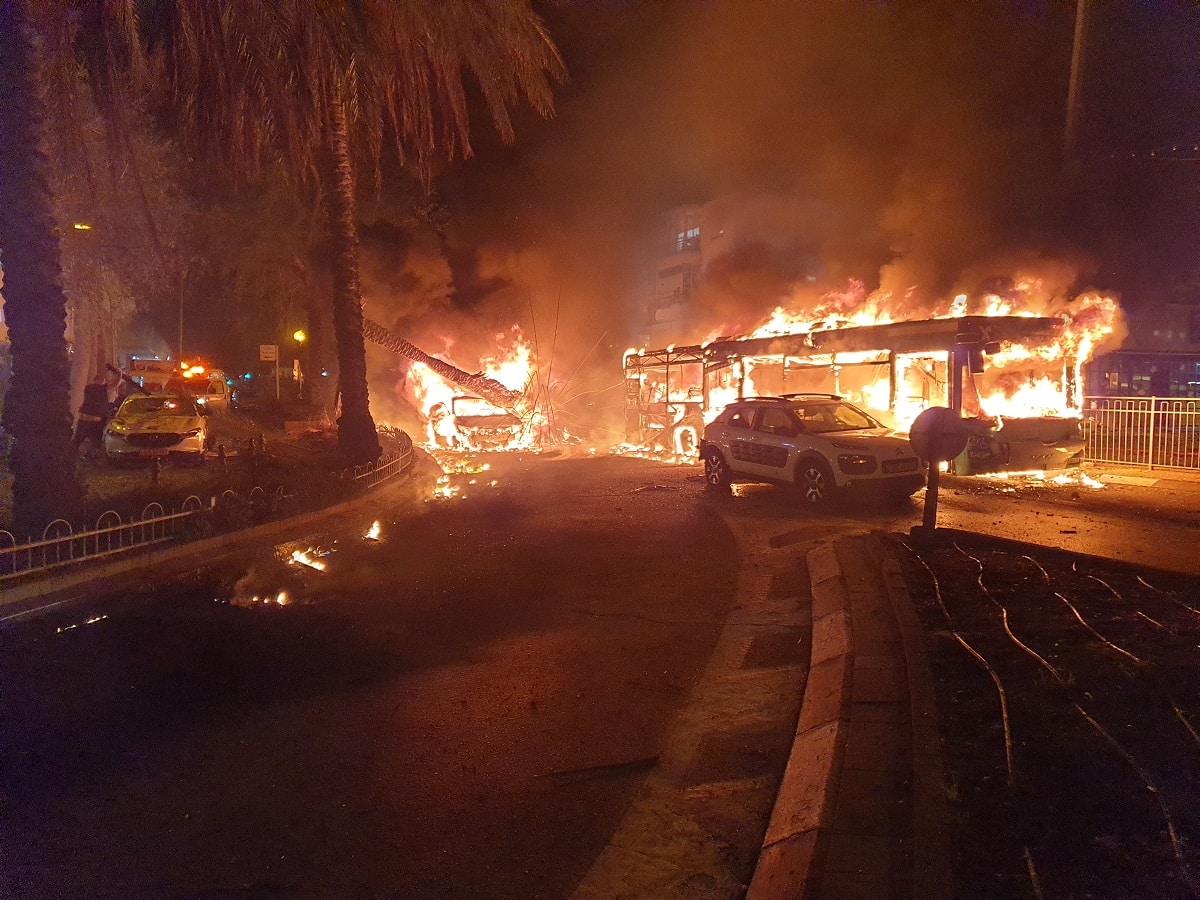
The Two Prongs of the Palestinian Strategy: National and Security
The first and deeper component of the Palestinian strategy is the national component.
This is reflected in two layers:
- Strengthening the national affinity to the land: it doesn’t matter where the Arabs live in our region, the Palestinian strategy encourages the strengthening of their affinity with “al-Aqsa”, an affinity that means cultivating a sense of ownership over all of Jerusalem, and later – all parts of the Land of Israel. The results of this strategy may be seen in a recently published clip in “Kan News” in which Arab youth are asked about the chance for peace and reply negatively and in a manner that reflects a fundamental belief: “this is the honor of the homeland”, “this was our home for generations”, or ” they want to take away al-Aqsa.”
- Delegitimizing Israel: If you have noticed, along with the disappearance of the “two states for two peoples” discourse, which folds within it a recognition of the State of Israel’s right to exist, a new- old concept was revealed wherein the State of Israel has no legitimacy to exist. The most prominent echo of this is the blatant and clear incitement against Israel in the Arab educational system, in the traditional Arab and global media and on the social networks.
Linking these two layers – the Arabs affinity to the land and the delegitimization of Israel – Brings the Arab public to a particularly strong national consciousness, echoes of which we witnessed in the May Riots, in which Israeli Arabs “aligned themselves” with the attacks from Gaza and went out into the streets of Lod and Akko “in defense of al-Aqsa”.
The second component in the strategy is the military-security component.
We cannot separate the ballistic armament efforts of Hezbollah in Lebanon and Hamas in Gaza from the accumulation of weapons in Judea and Samaria. An analysis of the repeated confrontations with Hamas and Hezbollah, an examination of the “Pay for Slay” policy that encourages and incentivizes terrorist attacks, the well planned stone throwing events in Judea and Samaria, and the links between foreign entities such as Iran and internal entities such as Arab Israelis – all indicate that the Palestinians side is preparing and continues to prepare for an all-out confrontation in a structured and organized fashion.
Connecting the dots between occurrences in the Negev, in the mixed cities and along Israel’s southern and northern borders presents a clear picture of a single strategy: national and security.
The Israeli National Security Strategy: Urgent Update is Required
And what about Israel? Do we have a relevant and current national security strategy? Let us examine these two sides: the national and the security side of Israel’s policy.
- There is no “National” in the National Security Strategy
Unfortunately, Israel has no national security concept. Ironically, when we talk about “national security” in Israel, the word “national” is removed from the lexicon, and the security concept is formulated solely from a military-security perspective. This is a basic and important tier in the security concept, without which it is difficult to build an in-depth security concept that is acceptable to Israeli society. Yet without a national ethos, which permeates to the public at large, no army can win. No fighter jet, submarine or division of tanks can cover for the absence of a righteous cause, the absence of a national vision and the absence of national aspirations.
The reason that Israel avoids this is a policy of burying its head in the sand. The building of a national vision and ethos cannot occur when we ignore the reality and reduce the discourse to the level of slogans. The building of such a vision and ethos requires Israel “to go into the arena” in every front that is opened: on the issue of the Bedouin seizure of state lands in the Negev, stone throwing terrorism in Judea and Samaria and riots in the mixed cities.
When addressing issues of settlement and governance as a political issue that should be silenced and swept under the rug, rather than as a national security issue that should be handled with all due seriousness, we lose the foundation for our national security strategy.
- The Security-Technical Strategy is Irrelevant
Our national security concept has three anchors that are built one atop the other: deterrence, warning and decisiveness.
The first anchor is deterrence. According to the commonly held security concept, when there is a period in which no missiles are fired at Israel, this is the fruit of deterrence. This is a misconception. We are not deterring anyone. The decision whether or not to fire upon us is made in accordance with an interest-minded consideration as to when to act against us, while continuing to arm themselves, and not due to deterrence.
The second anchor is warning. There was no warning about the missiles fired by Hamas upon Jerusalem in May 2021. None of our security and intelligence forces managed to identify and provide a warning that they were about to fire upon our capital. Why did this happen? Because the world has changed. In the past we fought armies in a “classical” type of warfare that required a lengthy and cumbersome process that included transporting forces and involving many factors. At present, that type of warfare has changed: at the push of a button 10s of thousands of missiles are launched at Tel Aviv. The warning has become far less relevant.
The third and final anchor is decisiveness. The understanding that we have no deterrence, and that in this current type of warfare we also do not have warning – render the concept of decisiveness irrelevant.
The conclusion is unambiguous and depressing: Israel has no relevant national security strategy, and there is an immediate and urgent need to update it.
The Danger in the Absence of Strategy: The Two-Vectors Theory
The fact that our enemies have a clear national security strategy, while we have a rickety strategy that requires a self-criticism, is dangerous and this situation must be handled immediately. The reason: two vectors that are about to converge and bring about a point of decisiveness that would place Israel in a weaker position. The two vectors that are about to converge in the coming months or years are the Arab-Palestinian campaign for all the Land of Israel and the Iranian campaign.
Let us start with the internal campaign: in the past decade, Israel has built a strategy of “containment”. This is a strategy intended to buy time and avoid friction, with the goal of allowing the economy and tourism to flourish, but sets a terrible price on the other hand, which we had a taste of during the events of May 2021. What had occurred in the mixed cities is linked to a strategy of avoidance, which does not deal with the root of the problem. We must recognize the existence of the problem and not fear friction in order to resolve it.
The second vector is the Iranian issue. Iran is building a battery of 300 thousand missiles, for a clearly offensive purpose. When the Iranians feel they have enough ammunition to disable the IAF bases, or when they feel that the opportunity they have waited for has come – they will activate these missile batteries.
In the next campaign, hundreds of thousands of rockets will be launched at strategic installations in Israel on the one hand, while an uprising throughout the Arab Sector within Israel will occur on the other. Is the Government of Israel, along with its security and police forces, preparing for this decisive point in a proper and comprehensive manner and with the necessary degree of urgency? I believe not, and that if we wait, we will encounter those two vectors when they are both at their strongest point.
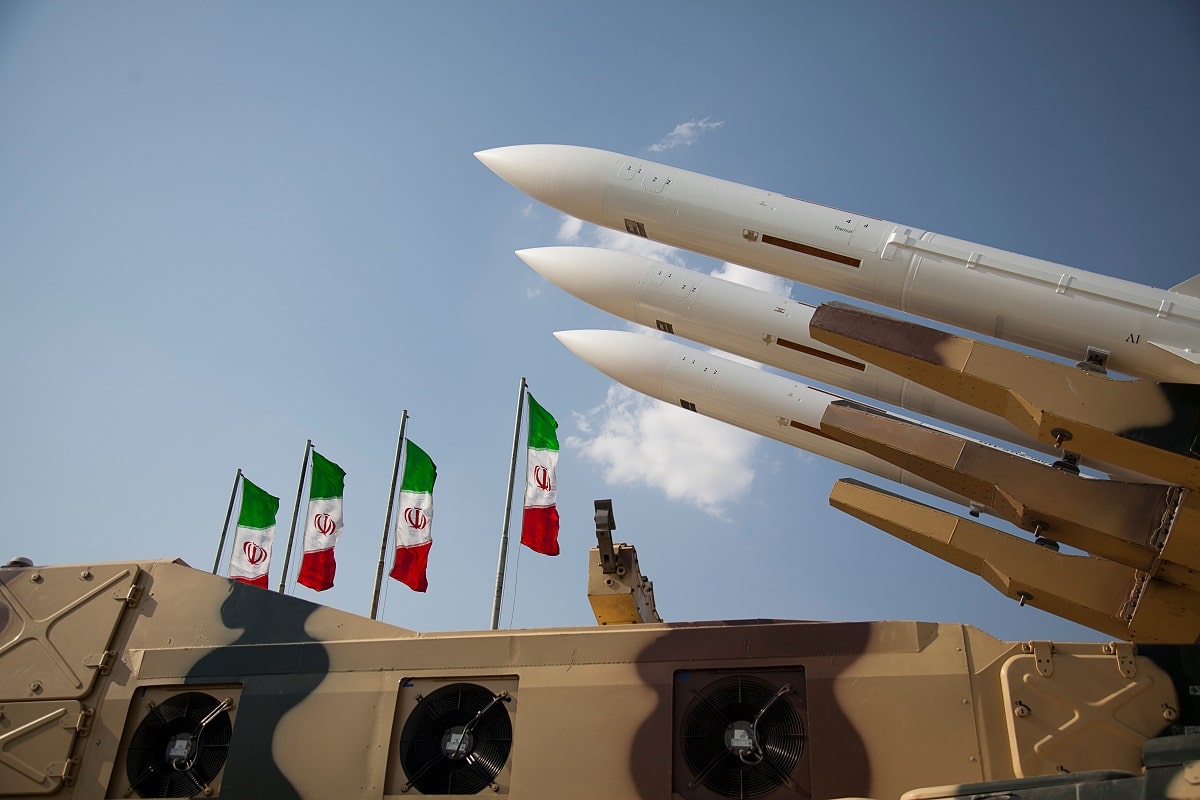
What can and should be done now in order to fix the situation?
We must formulate a different and new national security concept. We must strengthen the national ethos and vision and the faith in the righteousness of the way in the educational systems, the media and the policy makers. We must raise up in the public discourse the need to recognize the problems and deal with them instead of burying our head in the sand and “contain”.
I assure you: When this happens, and we in the IDSF are working to make it happen, everything will begin to change.


